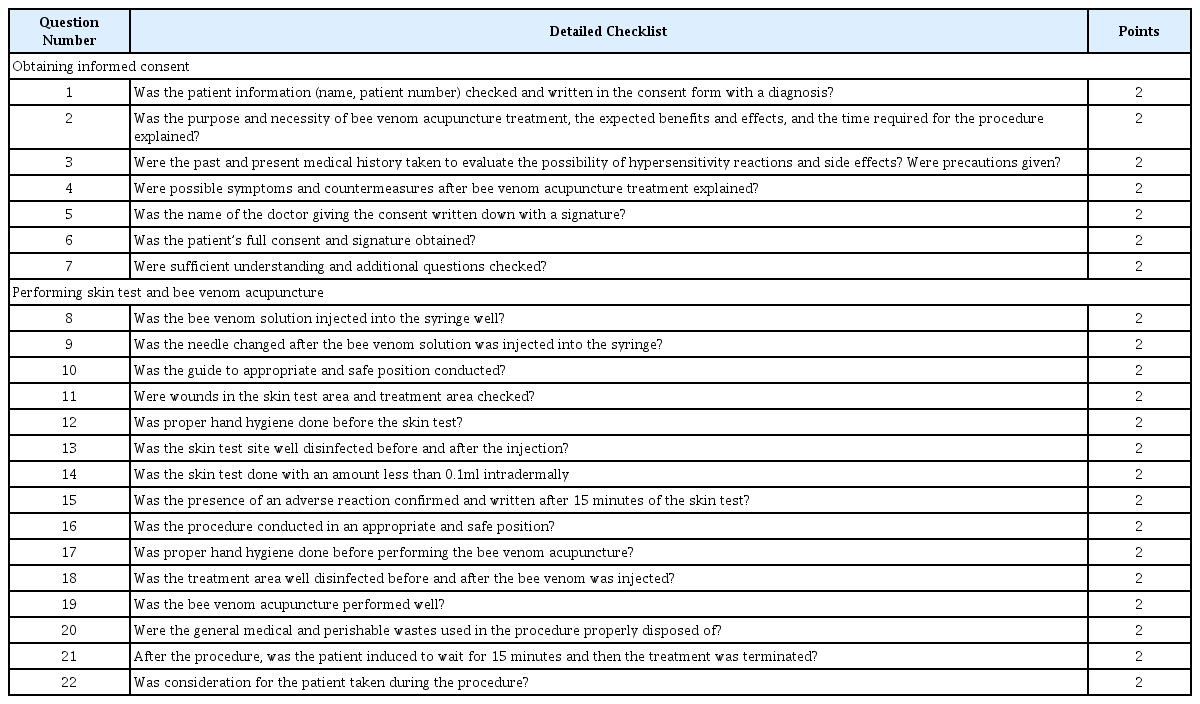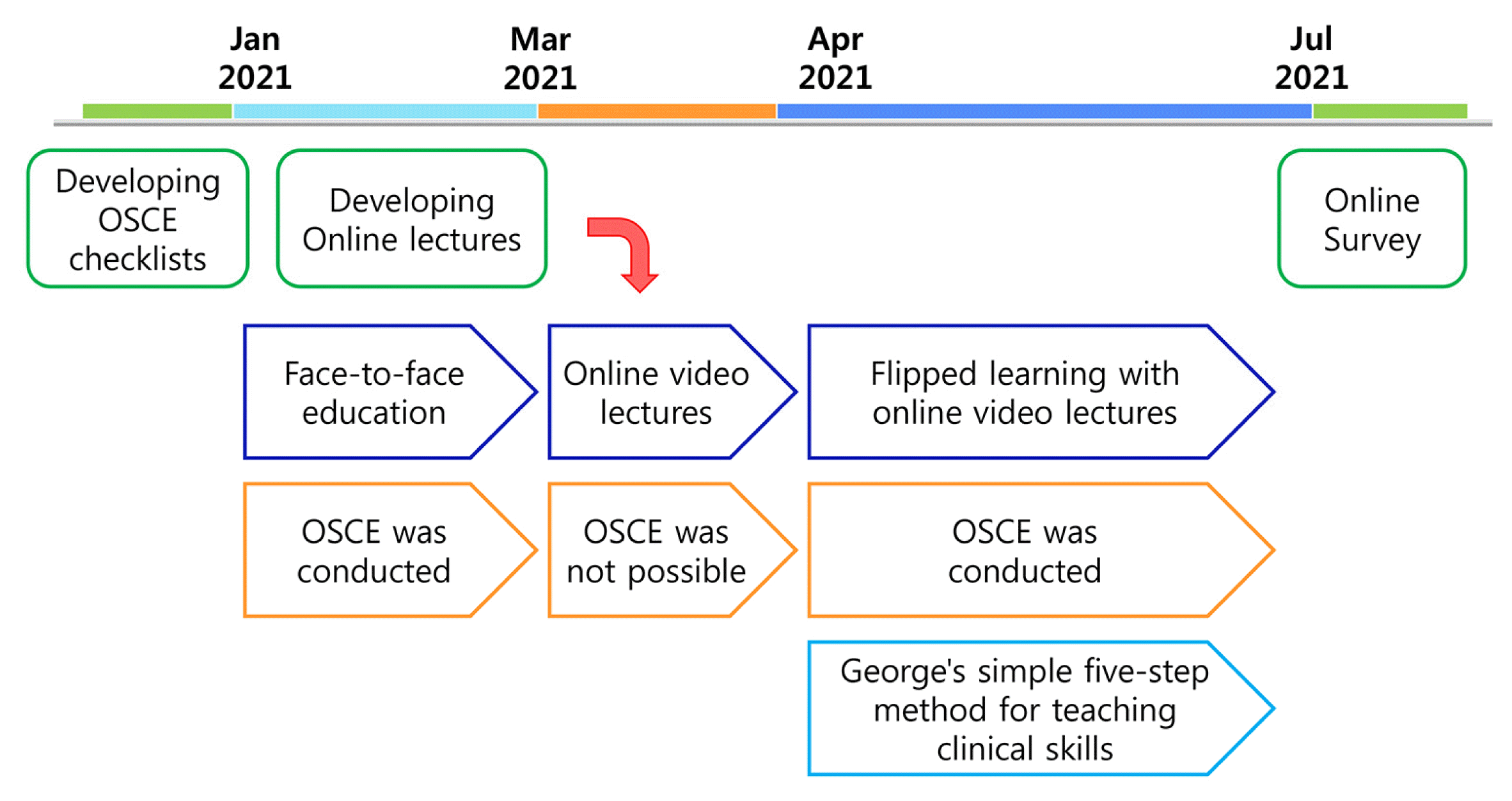Training future Korean medicine doctors to perform bee venom acupuncture and obtain informed consent using an objective structured clinical examination
Article information
Abstract
Objectives
This study describes the implementation of a training course that aimed to increase the competency of undergraduate students of Korean medicine at a single college to obtain informed consent and perform bee venom acupuncture using an objective structured clinical examination (OSCE).
Methods
We developed and implemented a short training course for 111 fourth-year students of Korean medicine during their clinical rotation at the Department of Acupuncture and Moxibustion Medicine. Lectures were conducted on the effects of and hypersensitivity reactions to bee venom acupuncture, obtaining informed consent, performing skin test and bee venom acupuncture. Due to the COVID-19 pandemic, some students were offered online lectures, and some could not experience the performance of OSCE in person. A survey with 16 closed and three open questions was used to investigate self-efficacy, opinions about the online lectures, and the OSCE.
Results
Out of 111 questionnaires, 104 were completed (94%). Students were generally satisfied with the online lectures and OSCE. For the subjective questionnaire about what was helpful in the training of bee venom acupuncture techniques and OSCE, the authenticity of the teaching method was recorded the highest.
Conclusions
This study showed that online lectures were effective in teaching clinical skills of Korean Medicine. It is necessary to produce standard educational materials for clinical skills of Korean Medicine, and studies to analyze the reliability and validity of OSCE are needed.

Analysis of the open-ended questions asked regarding the bee venom acupuncture training and OSCE. The training contents and methods were largely regarded as helpful. The training contents included information on obtaining informed consent, performing a skin test, the bee venom acupuncture procedure, and possible issues. The training methods included authenticity, online lectures, practice sessions, materials, OSCE, and feedback.

Objective Structured Clinical Examination Checklist for Obtaining Informed Consent and Training Bee Venom Acupuncture




